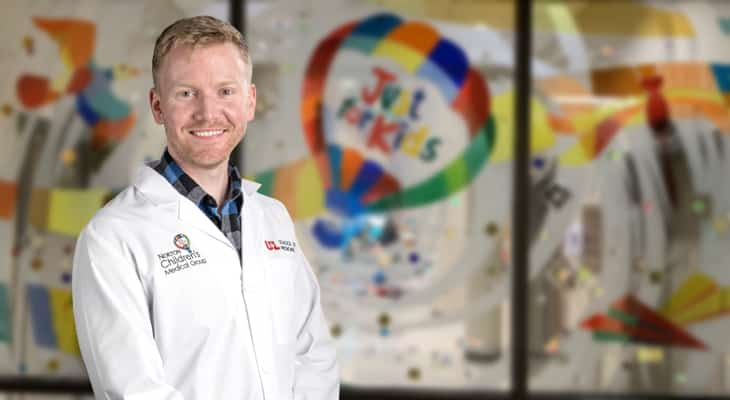Neurological effects of COVID-19 in children have been most common in those who had a preexisting neurological condition, representing both new symptoms and a continuation or worsening of previous symptoms

Neurological effects of COVID-19 in children have been most common in those who had a preexisting neurological condition, representing both new symptoms and a continuation or worsening of previous symptoms, according to a recently published study in JAMA Neurology.
Among children hospitalized for COVID-19, the study of patients at 61 U.S. hospitals found 21% had some sort of neurological symptom while ill. The rate more than doubled, to 43%, in cases in which children had a previous neurological condition.
By far, children with preexisting seizure disorders were the most likely to have neurological involvement of COVID-19. Neurological manifestations of COVID-19 were more common in more severe cases. These neurological manifestations did not significantly alter patients’ length of hospital stay but increased the need to go to rehab and quadrupled the risk of death, from 1% to 4%.
The study reviewed cases of patients hospitalized between March and December of 2020.
“We’re just now getting information about the delta variant, and I have not heard of any clinical features that differ, other than the infectivity being much higher for this variant,” said Michael L. Sweeney M.D., a child neurologist with Norton Children’s Neuroscience Institute, affiliated with the UofL School of Medicine.
For children acutely ill with COVID-19 who experienced neurological symptoms, the study found only about 5% of those children left the hospital with a new neurological deficit. The study did not cover whether this deficit was temporary or permanent.
Among children with COVID-19 and multisystem inflammatory syndrome in children (MIS-C), data show life-threatening neurologic conditions were quite rare, affecting only 2.5% of these patients. These included severe encephalopathy, strokes, acute disseminated encephalomyelitis (ADEM) or post-infectious encephalitis, acute fulminant cerebral edema, and Guillain-Barré syndrome.
Refer a patient
To refer a patient to Norton Children’s Neuroscience Institute, visit Norton EpicLink and choose EpicLink referral to “Neurology.”
Other neurological deficits seen in children hospitalized with COVID-19 include acute facial paralysis, focal neuritis, spinal cord damage with signs of necrosis, and vascular events such as sinus venous thrombosis and a small infarction at the brainstem.
Neurological effects of COVID-19 in children have been rare
“People have seen really small numbers of kids with rare complications spread across the country,” Dr. Sweeney said.
At Norton Children’s Hospital, neurological complications have also been rare, according to Dr. Sweeney.
“Locally, what we’ve really seen is kids who have chronic diseases have more severe complications,” he said.
An example he cited is children with cerebral palsy who get COVID-19 may experience worsening spasticity.
Norton Children’s Neuroscience Institute also has seen a couple of rare complications from COVID-19, including a child who ended up being diagnosed with anti-NMDA receptor encephalitis, according to Dr. Sweeney.
Lately, Norton Children’s Neuroscience Institute has seen an increasing number of referrals for long-term COVID-19, so-called long-haulers.
“These are chronic symptoms that patients have that haven’t been getting better over time, or have taken a long time to get better despite the infection being long gone,” Dr. Sweeney said.
One study that followed 518 children nine months after they were hospitalized for COVID-19 found 25% had persistent symptoms. The majority of patients’ complaints were fatigue, insomnia or sleep that is not restful, and ongoing trouble with smell or headaches.
“So even though symptoms did improve, the further you get, there was a significant number of patients who still had symptoms well after their acute presentation,” Dr. Sweeney said. “So we still haven’t figured out good ways to help these patients. We’re relying a lot on our therapists — physical therapy, occupational therapy — and hopefully we will improve our ways of helping these patients.”

